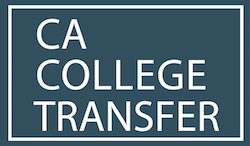Is a Second Bachelor’s Degree in Your Future?
I decided to do a blog post on this as I am currently working with a student who is applying out of state for a second bachelor’s degree. First, the pros and cons and then a link to how each UC handles it.
There are two options available.

The double major while still in college and working on your first major.
This is NOT be be confused with a second bachelor’s after you’ve completed your first.
A double major completed at the same time works best if you plan ahead. Using this approach, even a worst case scenario will likely only cost you an extra semester, occasionally two. While you may choose any second major the college allows, having a related major serves two purposes: (1) Some of the required courses will likely overlap and, (2) you will get a deeper breath of of knowledge with two similar majors –think international relations/business; econ/math, etc.
If you choose an entirely unrelated major as your second, the main obstacle will be extra courses, and in terms of career earnings potential, a prospective employer might think you didn’t garner a deeper understanding of your core discipline because the extra electives that would have gone into enhancing your foundation was spent fulfilling requirements for the second.
Indeed, having a double major could have an adverse effect on earnings. Meeting the requirements for multiple fields could result in too little depth within one’s main field and a decrease in the breadth of general knowledge, as free electives are supplanted by courses meeting requirements for second majors.1
In terms of earnings power, while this study was from 2003, it calculated that a double major in related subjects created a net earnings boost of 2.3%: However, if you go to graduate school, that boost evaporates.1
Realistically, in my opinion, the best bang for the buck is graduate school in a related subject. If you’re currently an undergrad, or on the cusp of being one, look for programs that combine the two degrees (bachelor’s and master’s), which will usually allow you to shave a year off. This is quite prevalent in business-related fields.
1: https://www.sciencedirect.com/science/article/abs/pii/S0272775707000659

A separate bachelor’s after you graduated and have one under your belt.
Everyone must decide what is best for them and there are variables, but I generally see this as not an ideal option. The good news is you can use your general ed courses to fulfil all or most of the general ed needed for the second major, but there are caveats: (1) Financial aid will not be available, save for loans; (2) even accounting for gen ed fulfilment, especially at a different college, there will be a minimum number of units that must be completed at the new institution. You could quite easily be adding two years of study. Compare that to a year or a year and a half of a graduate study for a master’s. And then add to that the higher career earnings a graduate degree provides.
If you are still set on pursuing a second bachelor’s (and as I noted, there are variables and exceptions), below is the rundown by UC campus.
UC Berkeley
Second-baccalaureate-degree applicants currently are considered only by the College of Chemistry for the majors of chemistry and chemical biology only (subject to change for each application filing period). See the check majors page for details.
Office of Undergraduate Admissions
110 Sproul Hall #5800
Berkeley, CA 94270-5800
(510) 642-3175
admissions.berkeley.edu
UC Davis
The College of Engineering considers second-baccalaureate degree applicants only in the majors of Biological Systems Engineering and Materials Science & Engineering. The first degree must be not in engineering, and the applicant must transfer directly from a California community college (CCC); all lower-division selective major criteria must be completed at a CCC prior to transfer. Admission requires the approval of the dean of the College of Engineering and the executive director of Undergraduate Admissions. See the check majors page for more details.
Undergraduate Admissions
Welcome Center
550 Alumni Lane
Davis, CA 95616-8507
(530) 752-2971
admissions.ucdavis.edu
UC Irvine
Second-baccalaureate degree admission is possible in some academic units. Applications are accepted for fall quarter only. In general, students are selected on a case-by-case basis. Interested candidates should see the check majors page for more details.
Office of Undergraduate Admissions
260 Aldrich Hall
Irvine, CA 92697-1075
(949) 824-6703
admissions.uci.edu
UCLA
UCLA does not accept applications from students seeking second baccalaureate degrees.
Undergraduate Admissions
1147 Murphy Hall, Box 951436
Los Angeles, CA 90095-1436
(310) 825-3101
admission.ucla.edu
UC Merced
UC Merced does not accept applications from students seeking second baccalaureate degrees.
Office of Admissions
5200 N. Lake Road
Merced, CA 95343
(209) 228-7178
admissions.ucmerced.edu
UC Riverside
UC Riverside does not accept applications from students seeking second baccalaureate degrees.
Undergraduate Admissions
3106 Student Services Building
Riverside, CA 92521
(951) 827-3411
admissions.ucr.edu
UC San Diego
UC San Diego does not accept applications from students seeking second baccalaureate degrees.
Undergraduate Admissions
9500 Gilman Drive #0021
La Jolla, CA 92093-0021
(858) 534-4831
admissions.ucsd.edu
UC Santa Barbara
UC Santa Barbara does not accept applications from students seeking second baccalaureate degrees.
Office of Admissions
1210 Cheadle Hall
Santa Barbara, CA 93106-2014
(805) 893-2881
admissions.sa.ucsb.edu
UC Santa Cruz
Second baccalaureate candidates are evaluated on a case-by-case basis when enrollment allows. Check the UC Santa Cruz website for more information in the fall before applying.
Undergraduate Admissions
1156 High Street
Santa Cruz, CA 95064
(831) 459-4008
admissions.ucsc.edu



Comments (0)